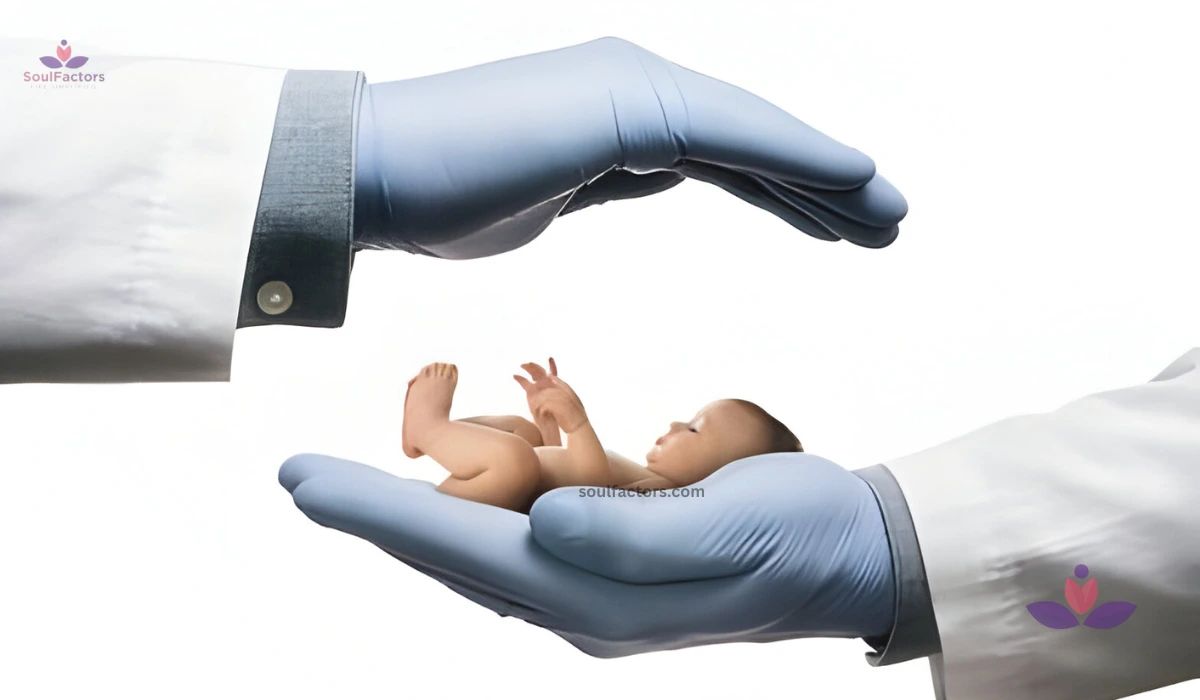What Are The IVF Pregnancy Risks?
In vitro fertilization (IVF) is a hopeful way for many individuals and couples struggling with infertility, but like all other medical procedure, it carries certain risks. What are they?
On Mar 21, 2024 – 5 minutes read

In vitro fertilization (IVF) has helped millions of couples struggling with infertility build families of their own. However, IVF does involve more risks compared to natural conception. Understanding these potential IVF pregnancy risks and complications empowers patients to make fully informed decisions about their family planning.
In this article, learn the facts about risks associated with IVF – both throughout pregnancy as well as for babies. Discover why IVF pregnancies require careful monitoring and increased precautions compared to low-risk pregnancies. We’ll also dive into the safety of the IVF procedure itself, including side effects like cramping and bloating.
Grasping the full scope of IVF pregnancy risks makes it possible to proactively minimize the risks through close work with your medical team. Let’s explore the intricate world of IVF to help you safely navigate risks on your journey toward parenthood.
Is IVF Pregnancy Risky?

All pregnancies involve some degree of risk. However IVF pregnancies face higher chances for complications. Some of the IVF pregnancy risks include:
- Ectopic pregnancy: embryo implants outside the uterus
- Multiple births: twins, triplets, or more
- Placental issues
- Premature delivery
- Low birth weight
- Miscarriage
- Gestational hypertension
- Gestational diabetes
Understanding what increases these IVF pregnancy risks empowers minimizing them. Doctors can then adjust medications and monitor more vigilantly for early complication warning signs.
Why is IVF High Risk Pregnancy?
The IVF process itself contributes additional risk versus natural conception. Extracting eggs requires stimulating the ovaries with injectable follicle-stimulating hormones. This yields more eggs but can overly stress the ovaries in some cases.
The many critical treatment steps also introduce small chances for error. Problems arose when recovering previously frozen embryos (thrawing) or implantation issues could negatively impact IVF. This contributes to higher miscarriage risks.
Additionally, preexisting medical conditions combined with advanced maternal age common in IVF patients exacerbate IVF pregnancy risks. Conditions like hypertension, diabetes, and autoimmune disorders all heighten chances for placenta issues or preeclampsia. Genetic abnormalities also prove more likely as mothers age, further raising miscarriage risks.
Understanding and mitigating these risks is key for IVF patients. Close monitoring and early interventions make it possible to still achieve healthy births despite elevated risks.
What is the Biggest Risk of IVF?
According to several health experts, multiple pregnancies prove the biggest IVF risk. Implanting multiple embryos to raise success rates also substantially raises chances for dangerous twin or triplet pregnancies.
Twins and triplets often result in dangerously premature births, low birth weights, and extended NICU stays. Over 15% of IVF pregnancies result in multiples currently, exacerbating life-threatening IVF pregnancy risks.
However, single embryo transfers drastically reduce this risk while maintaining decent live birth success rates. Discuss single embryo transfer or selectively reducing higher-order multiples with your doctor. This personalized approach to balancing risks and odds of success offers the best path to safety
Are There Any Risks with IVF Babies?

Some research suggests that babies conceived via IVF may face a higher likelihood of certain health conditions, like:
- Birth defects
- Childhood cancer
- Cerebral palsy
- Autism
- Imprinting disorders
However, researchers emphasize further study must substantiate these potential links before drawing conclusions. And recorded risks for these disorders after IVF remain quite low overall, especially for singleton pregnancies.
In many cases, advanced parental age and underlying medical conditions probably contribute more than IVF itself. Regardless, understanding potential IVF pregnancy risks allows for preparing and monitoring closely.
Is IVF Painful?
Undergoing IVF treatment does involve mild discomfort or cramping as ovaries swell and enlarge. Later egg retrieval can cause bloating, breast tenderness, or light cramping as well. However, medication helps minimize pain from procedures like egg retrieval. Symptoms typically peak within days of procedures and then resolve. Discussing concerns and pain management options with your care team ensures your personal comfort.
For most, IVF proves a physically and emotionally demanding journey – but very worthwhile for the chance to expand one’s family.
IVF Success Rate
On average, IVF proves successful 40-45% of the time for women under 35 using fresh embryos. But success rates decline with age, dropping to under 15% for women over 42. Using frozen embryos drops success rates by 5-15% across age groups as well. This demonstrates why age 35 often marks a tipping point for declining fertility.
However, personalized approaches balancing risk levels, embryo numbers, and transfer methods help customize the odds of success. This empowers hopeful parents to safely proceed cognizant of their unique chances. While IVF pregnancy risks exist, being an educated and empowered patient makes it possible to minimize complications and safely fulfill your hopes of pregnancy and parenthood.
Conclusion
Deciding whether to proceed with IVF means carefully weighing elevated health risks against improved odds of a successful, much-desired pregnancy. Normal pregnancies already involve some baseline risks and restrictions. However, IVF adds further complications like higher miscarriage risks or a greater likelihood of dangerous twin pregnancies.
Thankfully, the miracle of modern medicine makes it possible to mitigate IVF pregnancy risks through close medical care. Single embryo transfers, conservative medication dosing, and careful monitoring of mother and baby enable relatively safe pregnancies despite increased risks compared to natural conception. Understanding exactly why risks become elevated with IVF empowers patients and doctors to work together to preventively address complications. This promotes safely achieving a healthy singleton pregnancy, successful delivery, and joyous parenthood in most cases.
Yet risks do remain at some level with IVF, so contemplating one’s risk tolerance and ability to emotionally weather potential losses proves important. You must also prepare for greater pregnancy precautions should conception succeed after IVF. But for most hopeful parents, surmounting these challenges proves profoundly worthwhile. An educated, well-supported patient willing to precisely follow expert guidance can successfully minimize IVF risks. This makes the elevated but controlled risks of IVF manageable for bringing your long-awaited dreams of a family to life.
What key IVF risks or statistics stood out to you most? What questions remain on your mind regarding the safety profile? Share your thoughts and experiences below!

Subscribe to Newsletter
Elevate your routine, stay on trend, and embrace a personalized beauty journey with our curated insights.





Write a Comment